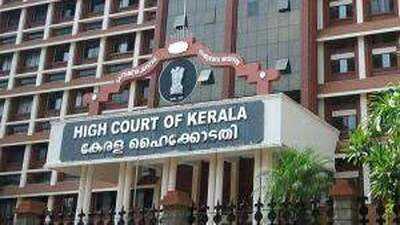Kochi | The Kerala High Court on Friday said that notifying the Munambam land as waqf was a "land grabbing tactic of the Kerala Waqf Board" and upheld the government order appointing a inquiry commission to ascertain ownership of the disputed area.
A bench of justices Sushrut Arvind Dharmadhikari and Syam Kumar V M also said that the subject property could never have been classified as a waqf property for want of compliance with mandatory procedure and provisions of the Waqf Act of 1954 and 1955.
It said that the notifying of the land in dispute as waqf was ultra vires the provisions of the Waqf Act of 1954 and 1995 and "nothing less than a land grabbing tactics of the Kerala Waqf Board (KWB)".
The bench observed that the move has 'affected the bread and butter, livelihood of hundreds of families and bonafide occupants who had purchased tranches of land decades prior to the notification of the waqf property".
In these circumstances, the state government could not have been restrained from constituting an inquiry commission (IC) and submitting a report, the bench said while allowing the appeals against a March 17 single judge order that quashed the appointment of the panel.
Upholding the appointment of the IC, the bench said that the state government was at liberty to implement the panel's recommendations in accordance with law.
The bench also held that the actions of the Kerala Waqf Board of declaring or registering the land in dispute as a waqf property were "bad in law" on the grounds of being "unreasonably delayed" and having been issued in "palpable violation of the provisions of the Waqf Acts of 1954, 1984, and 1995 and, therefore, "non-enforceable".
The court said that merely because the nomenclature of the subject land deed of 1950 was a waqf endowment, will not clothe it with the said character in view of the "absolute vesting of rights of transfer or sale and ownership in the hands of Farooq College Management Committee".
The land in Munambam village of Ernakulam district, whose ownership is being claimed by the waqf, was sold to the current residents by the Farooq Management.
The bench said that the endowment deed of 1950 never intended to create any permanent dedication in the favour of God.
It was simply a gift deed in favour of the Farooq Management and therefore, "could never have qualified as a waqf deed under any of the enactments of the Waqf Act, the court said.
"However, we restrain ourselves from issuing a formal order of quashing them (KWB orders), since the purpose of returning all the above findings is just to hold that the state government is not bound by such highly belatedly issued declaration by the KWB after 7 decades (69 years)," the court said.
The bench said that it would not be appropriate to interfere with the constitution of the IC at the threshold, when it was yet to furnish a final report which is to be acted upon and taken to a logical conclusion by the state government.
 Kerala High Court
Kerala High Court "We expect and hope that the sole member Inquiry Commission (IC) shall respect the expectations placed upon it by us in the preceding paragraphs and provide a room for consideration of grievances of all the aggrieved parties," it said and set aside the single judge's March 17 order.
The state government had appointed a commission headed by former acting Chief Justice of the Kerala High Court Justice C N Ramachandran Nair in November last year to ascertain land ownership in the disputed area.
In the villages of Cherai and Munambam in Ernakulam district, residents have alleged that the Waqf Board was unlawfully claiming their land and properties, despite them holding registered deeds and land tax payment receipts.
You may also like

Ricky Hatton's manager wants 'truth out' about cause of death after finding his body

Daniel Twigg's parents jailed after boy, 3, savaged to death by dog on farm

Zubeen Garg's two PSOs held over suspicious bank transactions

WPAC 2025: India likely to lose two medals as visually impaired runner's guide provisionally suspended for doping

Emmerdale's Moira Dingle sparks new health concern after collapse






